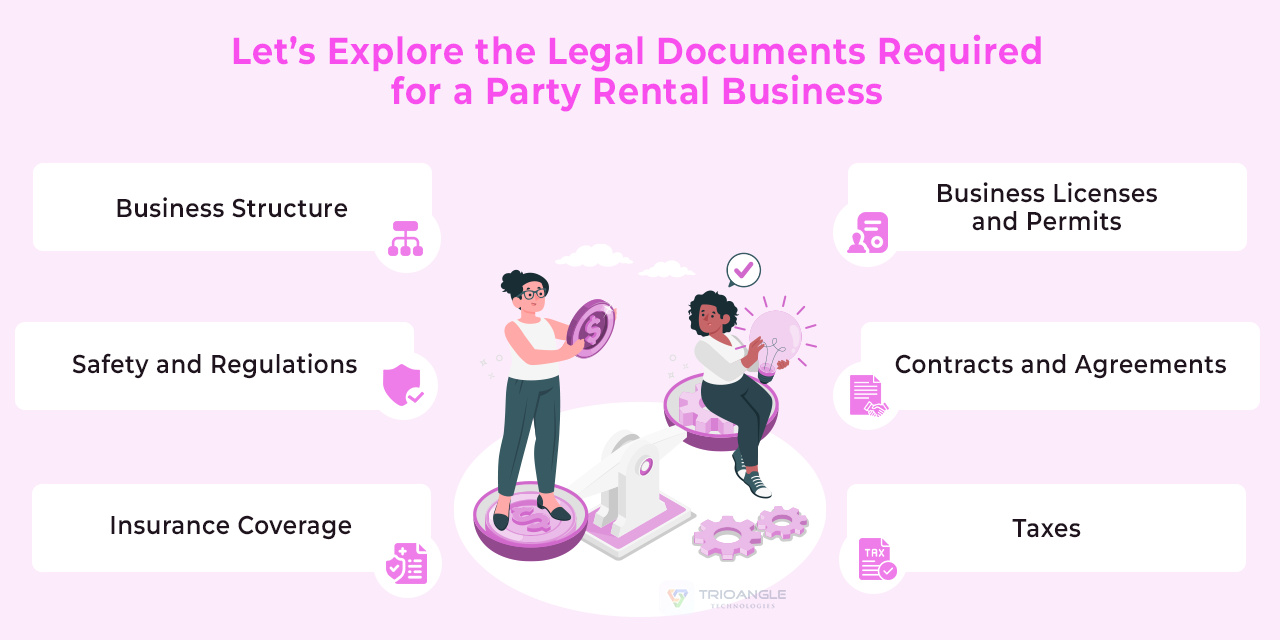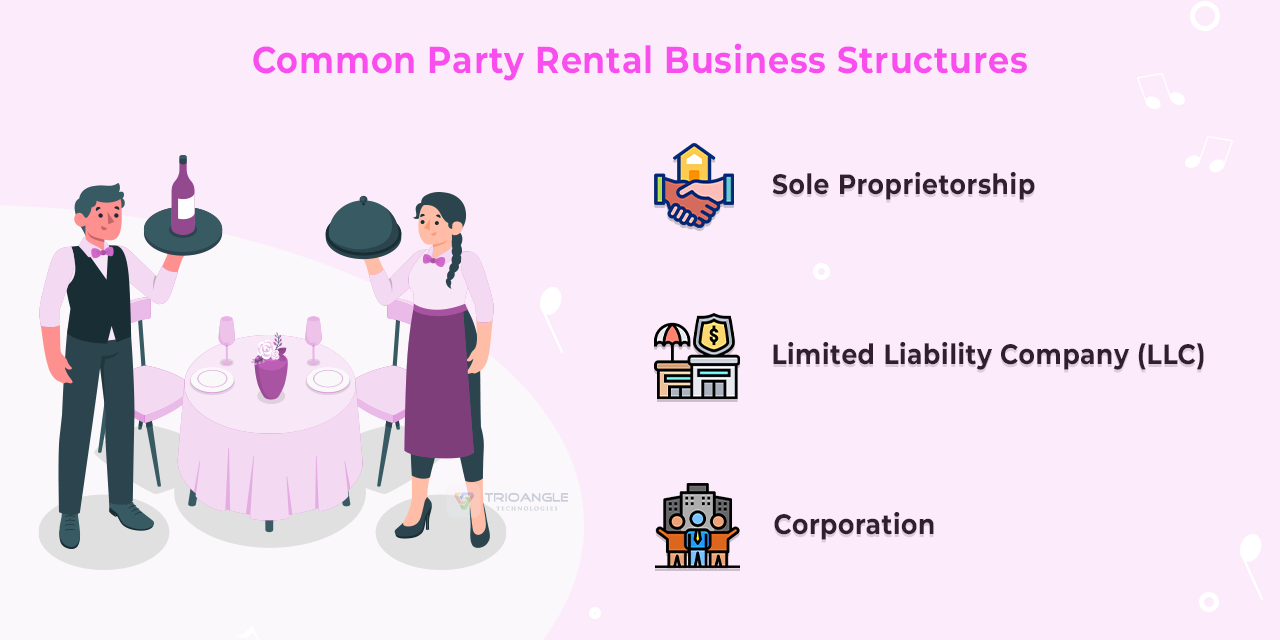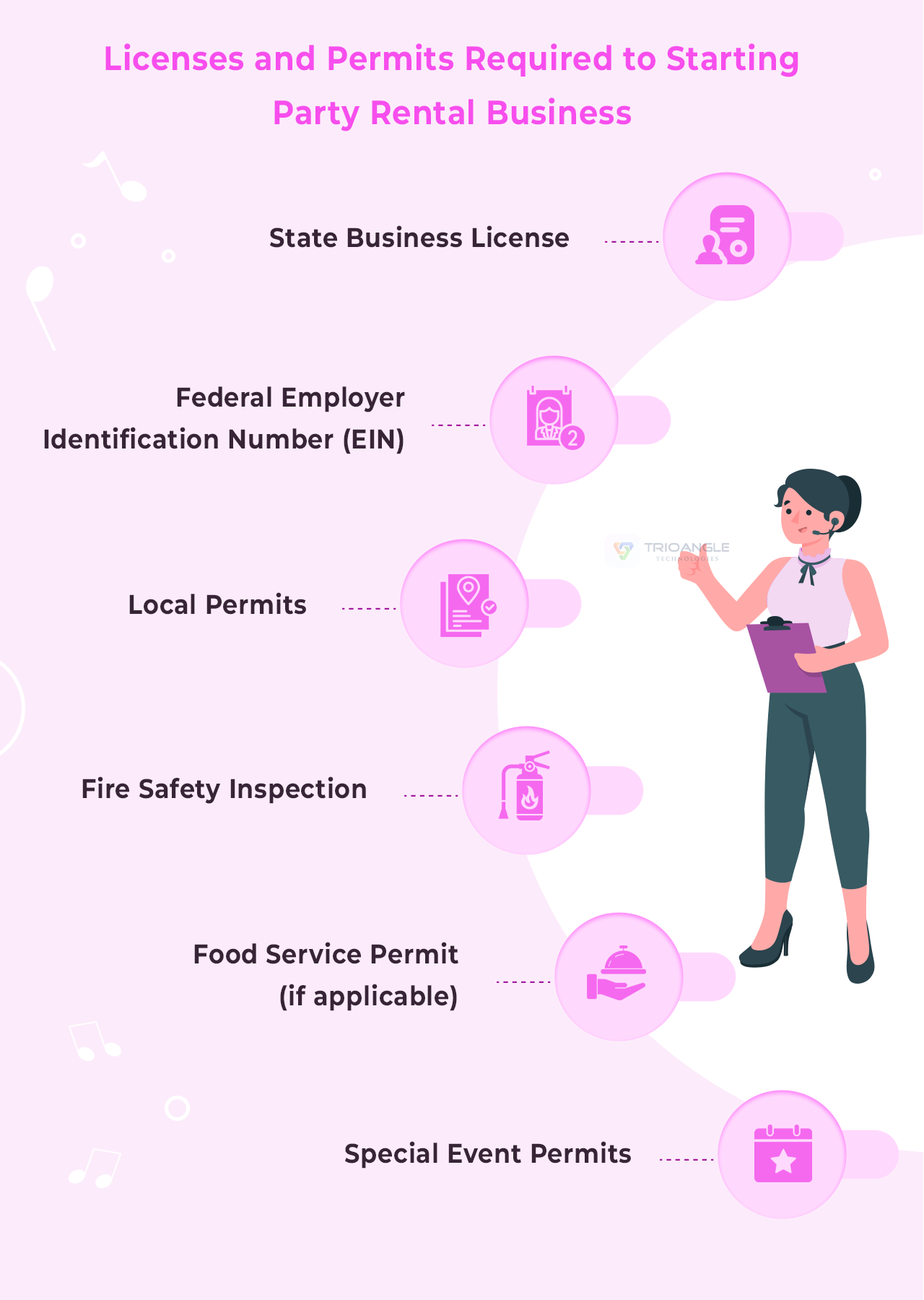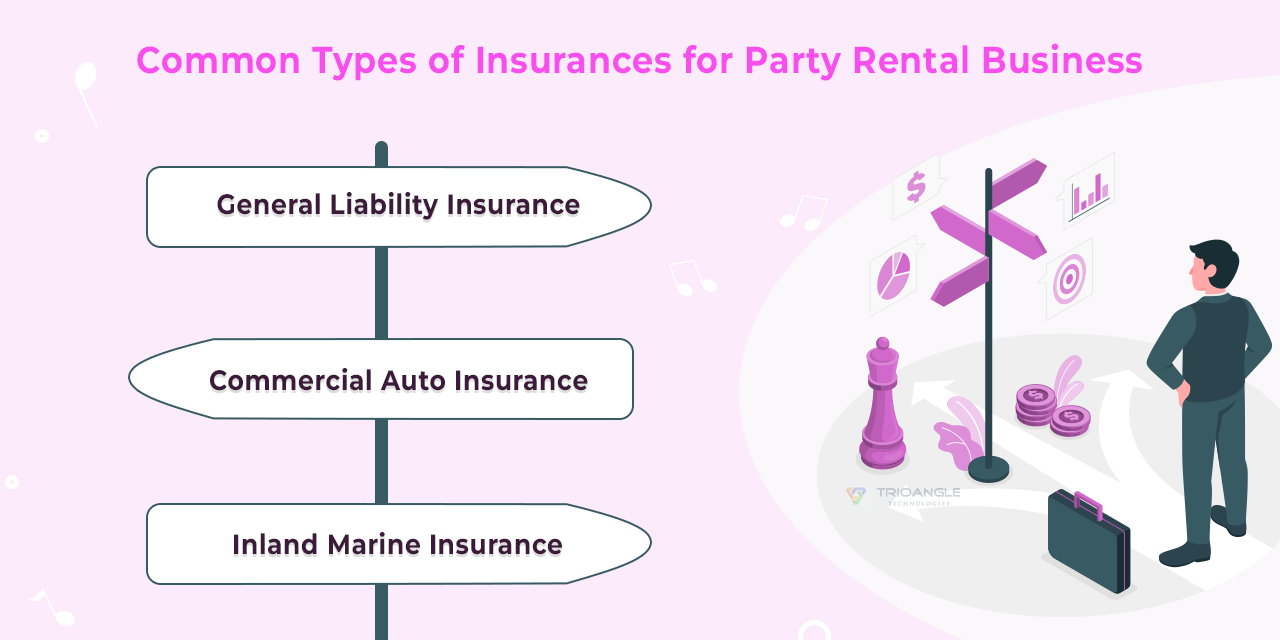“Party Rental Business Legalization – Ensure Compliance, Maximize Success!”
Do you have unused indoor and outdoor spaces, equipment, supplies, and entertainment options, and wait to transform them into revenue? Don’t make them wait too long because you’ve already got the idea of how to start a party rental business.
However, before diving into party rentals, it’s crucial to familiarize yourself with the legal requirements to ensure your business complies with regulations and operates legally.
Don’t waste time! Let’s delve in and learn about the legal documents required for starting a party rental business!
Legal Documents Required for a Party Rental Business

Let’s explore each of them in detail:
1. Business Structure
Choosing the right business structure is essential for laying the legal foundation of your business, as it affects liability, taxes, and how you raise capital. To select the right business structure, research the options available in your area.
Here are some common choices:

Sole Proprietorship
Simplest to form, but you have personal liability for debts and business losses. This structure is suitable for small-scale operations.
Limited Liability Company (LLC)
Offers liability protection, protecting your personal assets from business liabilities. This is a popular choice for party rental businesses due to the balance between ease of management and protection.
Corporation
Provide greater formality and potential tax advantages, but comes with more complex procedures. This is often suitable for larger businesses.
When choosing a business structure, consider factors like personal liability protection, tax implications, and management complexity. Consulting with a business attorney or accountant can help you determine the best structure for your specific needs.
After choosing your business structure, file the necessary paperwork with your state’s Secretary of State or local government office. This establishes your legal existence and allows you to open a business bank account.
2. Party Rental Business Licenses and Permits
Obtaining the necessary permits and licenses ensures that your business operates legally and complies with regulations. This protects you from fines and potential shutdowns. The party rental business typically requires a combination of licenses and permits, which can vary based on your location and the type of equipment you rent.
Here’s a general breakdown of what you may need:

State Business License
Contact your state’s licensing division to identify the specific licenses required for party rentals. This could include general business licenses or industry-specific ones for renting equipment.
Federal Employer Identification Number (EIN)
Obtain an EIN from the Internal Revenue Service (IRS) to establish your business for tax purposes.
Local Permits
Check with your city or region for any additional permits needed, such as zoning permits for operating a business from your location.
Fire Safety Inspection
Ensure your storage space meets the fire safety regulations. Contact your local fire department for detailed requirements.
Food Service Permit (if applicable)
If you rent equipment for food preparation or service, you may need to obtain a food service permit. Check with your local health department to understand specific requirements.
Special Event Permits
Certain party rental items like tents or bounce houses might require additional permits for specific events. Check with your local municipality for details.
3. Safety and Regulations
Safety is paramount in the party rental business, especially with items like bouncy castles, inflatable slides, and other potentially risky equipment. Adhering to safety regulations ensures your equipment is safe for use and minimizes the risk of accidents or injuries.
To achieve this, your business should follow safety standards such as:
- Consumer Product Safety Commission (CPSC): Familiarize yourself with safety standards set by the CPSC for rental items, particularly inflatables and children’s equipment.
- American National Standards Institute (ANSI): Follow ANSI guidelines for aspects like tent installation and amusement ride safety, if applicable to your inventory.
- American Society for Testing and Materials (ASTM): Refer to ASTM standards for the safety requirements of tables, chairs, tents, and other rental items. Ensure your equipment meets these standards.
Regularly inspect and maintain your rental equipment to identify and address any potential safety hazards. This proactive approach will help ensure a safe experience for your customers.
4. Contracts and Agreements
Clear and well-defined contracts are important as they protect both you and your customers. Create a comprehensive rental agreement that outlines the terms and conditions of your service. It should include:
- Description of rental items
- Responsibilities
- Rental fees and payment terms
- Security deposit
- Damage policies
- Delivery, set-up, and pick-up arrangements
- Cancellation policy
Mention these elements in your party rental script platform, as it minimizes misunderstandings and potential disputes.
Furthermore, consider adding a hold harmless agreement that shifts liability to the customer for any injuries or damages sustained during the rental period.
When implementing the rental contract, consult with a lawyer to ensure this agreement complies with local laws.
5. Insurance Coverage
Having good insurance is essential for protecting your business from financial losses caused by unforeseen events. It provides peace of mind and safeguards your investment.
Here are key types of insurance to consider:

- General Liability Insurance: This protects you from financial losses due to property damage or theft of your rental inventory. It’s essential coverage for any party rental business.
- Commercial Auto Insurance: If you deliver or transport rentals using vehicles, this insurance covers you in case of accidents or damage.
- Inland Marine Insurance: Covers damage to your rental inventory while it’s not in your control, such as during transport or while set up at an event location.
When selecting your insurance coverage, consider the types of equipment you rent and the potential risks involved. Consult with an insurance agent to assess your specific needs and obtain the right coverage amounts for your business.
6. Taxes
Understanding your tax obligations ensures you comply with federal and state tax laws. Failing to do so can lead to penalties and additional interest charges. To avoid this:
- Understand tax filing requirements based on your chosen business structure.
- If you have employees, you’ll be responsible for withholding payroll taxes.
- Consider consulting a tax professional for guidance on filing taxes and maximizing deductions specific to your business.
By staying informed and proactive about your tax responsibilities, you can avoid potential issues and ensure your business operates smoothly.
Legalize Your Party Rental Business Now!
We hope this blog provides valuable information about the legal requirements for starting a party rental business. Keep in mind that these are general overviews, as the specific requirements may vary based on your location and the type of equipment you rent out.
By ensuring compliance with all relevant regulations, you’ll be well on your way to launching a successful party rental business.
Need More Insights About the Party Rental Business?





